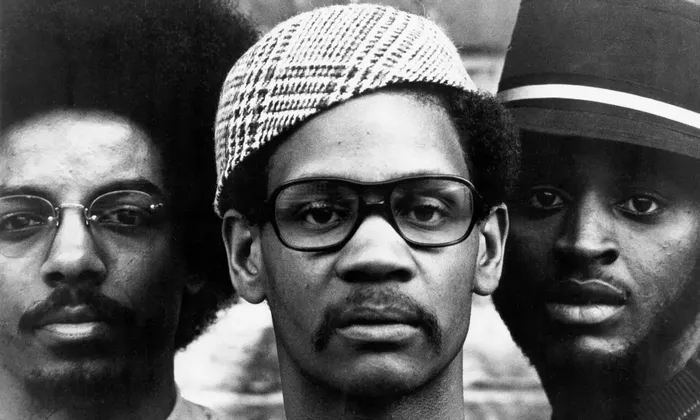In the tumultuous landscape of hip-hop history, the contributions of certain trailblazers often remain overshadowed by more commercially visible figures. The Last Poets and Watts Prophets, two groups of radical poets and performers, are prime examples of pioneers who laid the foundation for hip-hop’s revolutionary voice but were unjustly “written out of history.” In this article, we delve into the legacy of The Last Poets and Watts Prophets, exploring their profound impact on shaping not only hip-hop but also the broader cultural and social discourse.
I. The Last Poets: The Vanguard of Spoken Word
Emerging from the Black Arts Movement of the late 1960s, The Last Poets embodied a spirit of rebellion and a commitment to unapologetic truth-telling. Fusing spoken word with rhythmic cadence, they addressed issues of racial injustice, identity, and empowerment. Their fiery performances served as a precursor to modern hip-hop, channeling anger and frustration into a potent art form that resonated with disenfranchised communities.
II. Watts Prophets: Poetry as Protest
Parallel to The Last Poets, the Watts Prophets emerged in the same era, using their poetry as a tool for social and political protest. Hailing from Los Angeles, their raw and unfiltered verses critiqued systemic racism, economic inequality, and the struggles faced by African Americans. Their ability to meld poetry with music and performance set the stage for the revolutionary nature of hip-hop.
III. The Influence of Griots and Oral Tradition
Both The Last Poets and Watts Prophets drew inspiration from the West African griot tradition, where oral storytelling preserved history and culture. They translated this tradition into urban American experiences, using their voices to narrate the stories of their communities. Their work challenged mainstream narratives and provided a platform for marginalized voices to be heard.
IV. “Written Out of History”: Erasure and Recognition
Despite their groundbreaking contributions, The Last Poets and Watts Prophets have often been sidelined in discussions of hip-hop’s origins. The mainstream focus on commercial success overshadowed their impact on the genre’s sociopolitical roots. The erasure of these revolutionary pioneers highlights the need to acknowledge and celebrate the true origins of hip-hop as a tool for social change.
V. The Resonance of Resistance
The Last Poets and Watts Prophets continue to resonate in today’s sociopolitical climate. Their fearless exploration of racial inequality, systemic oppression, and urban realities remains relevant as contemporary artists use hip-hop to amplify the struggles of marginalized communities. Their legacy is a reminder that hip-hop is not just a genre; it’s a vehicle for truth and empowerment.
VI. Spoken Word as Catalyst
The spoken word traditions of The Last Poets and Watts Prophets set the stage for rap’s lyrical potency. Their performances showcased the art of storytelling through rhythm and rhyme, foreshadowing the lyrical complexity and social commentary that define modern hip-hop. Their influence can be heard in the cadence and delivery of many hip-hop artists today.
VII. The Battle for Authenticity
As hip-hop evolved, the battle for authenticity within the genre intensified. The Last Poets and Watts Prophets’ dedication to using their art as a platform for social justice and empowerment stands in contrast to the commercialization of hip-hop. Their uncompromising stance on addressing societal issues serves as a reminder of the genre’s revolutionary roots.
VIII. Legacy and Reclamation
In recent years, efforts have been made to reclaim the legacy of The Last Poets and Watts Prophets. Documentaries, academic discussions, and collaborations with modern artists seek to honor their contributions and ensure that their voices are not silenced by historical oversight. Their stories serve as a lesson in the power of art to drive social change.
IX. The Unbroken Chain
The legacy of The Last Poets and Watts Prophets lives on in the artists they inspired. Contemporary musicians, poets, and activists draw from their tradition of using art as a means of resistance and empowerment. As the torchbearers of radical hip-hop, their impact ripples through time, creating an unbroken chain of artistic defiance.
X. Conclusion: Reclaiming the Narrative
The Last Poets and Watts Prophets challenge us to rethink hip-hop history and recognize the vital role of revolutionary spoken word artists in shaping the genre. Their contributions extend far beyond entertainment; they served as architects of cultural and social transformation. As we celebrate hip-hop’s evolution, we must also honor its origins by acknowledging the pioneers who paved the way for a movement that continues to echo through generations.

